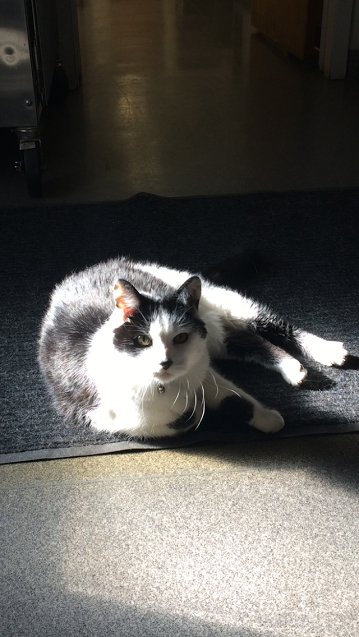
Hairballs: More common in the longer haired cats but can be seen in any cat. You can help prevent hairball vomiting by brushing your cat on a regular basis, using an oral hairball laxative found over the counter, or feeding a "hairball control" diet that is specially formulated to encourage transit of hair through the digestive tract.
Sensitive Stomach: Cats are very sensitive little creatures! You may notice them eating grass if allowed outdoors. This can sometimes indicate they have an upset stomach. Sometimes switching to a "sensitive stomach" diet that encourages easy digestion will eliminate the problem. Also decreasing the amount of tasty treats given can help with upset stomach, too - this is similar to a kid eating too many candy bars! On occasion, cats can develop a food allergy to a specific food they are eating and your veterinarian may recommend a prescription diet during your visit.
Medical Issue: During your cat's veterinary visit, a full physical exam will be performed. Other tests, such as a fecal exam, bloodwork, or x-rays, may be needed to diagnose the reason for the vomiting. Common medical issues that may cause vomiting include intestinal parasites, kidney disease, hyperthyroidism, inflammatory bowel disease, and lymphoma. Vomiting that may be caused from eating a foreign object (string, toy, etc.) or from eating a toxin (poison, human medication, certain plants, etc.) is an urgent matter and will need to be seen by a veterinarian immediately.
If your cat is vomiting and you would like to make an appointment or if you just have questions, never hesitate to call us at Shaver Road Animal Hospital!